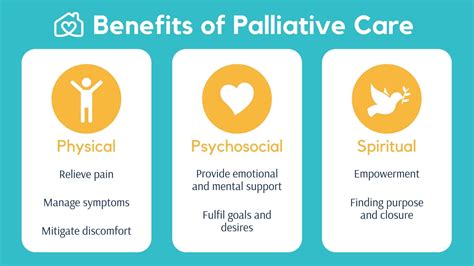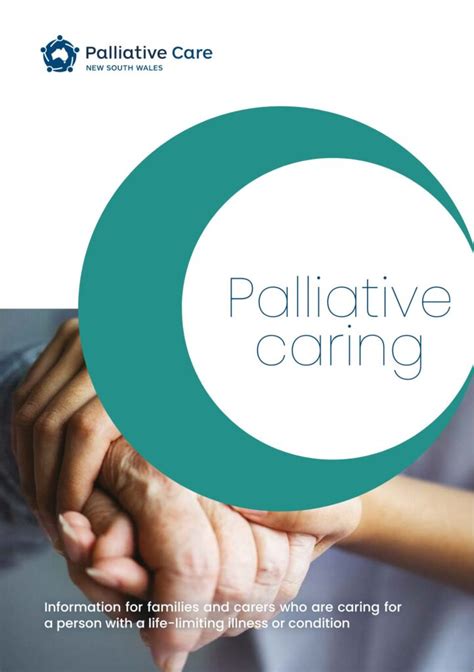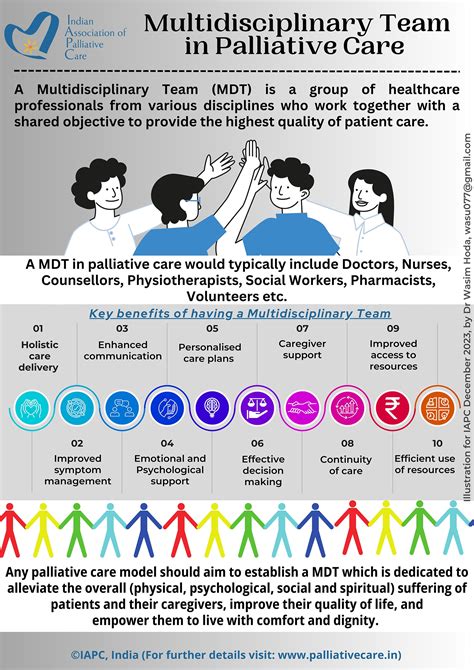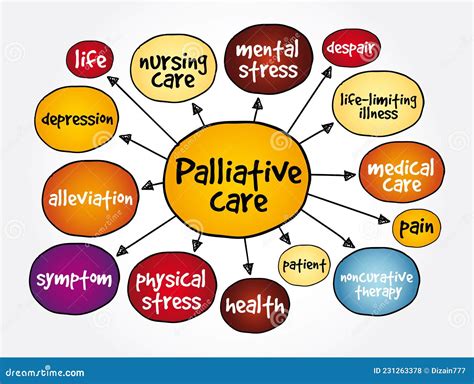Intro
Discover how palliative care improves quality of life with symptom management, emotional support, and pain relief, enhancing patient comfort and overall well-being through holistic care approaches.
Palliative care is a type of medical care that focuses on providing relief from the symptoms, pain, and stress of a serious illness. It is often misunderstood as being only for patients who are nearing the end of life, but it can be beneficial for anyone with a serious illness, regardless of their prognosis. Palliative care can be provided in a variety of settings, including hospitals, clinics, and even in the patient's own home. The goal of palliative care is to improve the quality of life for both the patient and their family.
The importance of palliative care cannot be overstated. Serious illnesses can have a profound impact on a person's physical and emotional well-being, and palliative care can help to alleviate many of the symptoms and side effects associated with these illnesses. From managing pain and nausea to providing emotional support and counseling, palliative care can make a significant difference in the lives of patients and their loved ones. By providing comprehensive and compassionate care, palliative care teams can help patients to live their lives to the fullest, even in the face of a serious illness.
Palliative care is a multidisciplinary approach that involves a team of healthcare professionals, including doctors, nurses, social workers, and chaplains. This team works together to provide comprehensive care that addresses the physical, emotional, and spiritual needs of the patient. By taking a holistic approach to care, palliative care teams can help patients to manage their symptoms, improve their quality of life, and maintain their independence and dignity. Whether a patient is receiving curative treatments, such as chemotherapy or radiation, or is nearing the end of life, palliative care can provide valuable support and guidance.
What is Palliative Care?

Benefits of Palliative Care
The benefits of palliative care are numerous and well-documented. Some of the most significant benefits include: * Improved symptom management: Palliative care teams can help patients to manage their symptoms, such as pain, nausea, and fatigue, and improve their overall quality of life. * Enhanced emotional support: Palliative care teams can provide emotional support and counseling to patients and their families, helping them to cope with the stress and anxiety of a serious illness. * Increased patient satisfaction: Patients who receive palliative care tend to be more satisfied with their care, and report higher levels of satisfaction with their healthcare providers. * Better communication: Palliative care teams can help to facilitate communication between patients, families, and healthcare providers, ensuring that everyone is on the same page and that patients receive the care they need.How Does Palliative Care Work?

Steps to Receiving Palliative Care
Receiving palliative care is a relatively straightforward process. Here are the steps to follow: 1. Ask your doctor: The first step to receiving palliative care is to ask your doctor for a referral. Your doctor can help you to determine whether palliative care is right for you, and can refer you to a palliative care team. 2. Meet with the palliative care team: Once you have been referred to a palliative care team, you will meet with the team to discuss your needs and develop a plan of care. 3. Receive ongoing support: The palliative care team will provide ongoing support and guidance as you navigate your illness. This may include regular meetings with the team, as well as access to support and resources as needed.Types of Palliative Care

Examples of Palliative Care in Action
Here are a few examples of palliative care in action: * A patient with advanced cancer receives palliative care to manage their pain and symptoms, allowing them to live their life to the fullest. * A patient with a serious illness receives emotional support and counseling from a palliative care team, helping them to cope with the stress and anxiety of their illness. * A patient nearing the end of life receives hospice care, which provides comprehensive support and guidance to the patient and their family.Benefits of Palliative Care for Families

How Families Can Access Palliative Care
Families can access palliative care by asking their loved one's doctor for a referral. The doctor can help to determine whether palliative care is right for the patient, and can refer the patient to a palliative care team. Families can also contact a palliative care team directly to learn more about their services and to schedule a consultation.Common Misconceptions About Palliative Care

Debunking the Myths
Here are a few ways to debunk the myths about palliative care: * Learn more about palliative care: The best way to debunk the myths about palliative care is to learn more about it. Contact a palliative care team to learn more about their services and to schedule a consultation. * Talk to a healthcare provider: Healthcare providers can help to debunk the myths about palliative care and provide more information about its benefits and services. * Share your story: If you or a loved one has received palliative care, share your story with others. This can help to raise awareness about the benefits of palliative care and debunk the myths surrounding it.Future of Palliative Care

What to Expect
Here are a few things to expect from the future of palliative care: * More comprehensive services: Palliative care teams will provide more comprehensive services, including emotional support, practical support, and respite care. * Greater accessibility: Palliative care services will become more accessible, with more teams providing care in a variety of settings, including hospitals, clinics, and patients' homes. * Increased focus on prevention: Palliative care teams will place an increased focus on prevention, which can help to reduce the burden of serious illnesses and improve outcomes.What is palliative care?
+Palliative care is a type of medical care that focuses on providing relief from the symptoms, pain, and stress of a serious illness.
Who can benefit from palliative care?
+Palliative care can benefit anyone with a serious illness, regardless of their prognosis. It can be provided in conjunction with curative treatments, such as chemotherapy or radiation.
How do I access palliative care?
+You can access palliative care by asking your doctor for a referral. Your doctor can help to determine whether palliative care is right for you, and can refer you to a palliative care team.
What are the benefits of palliative care?
+The benefits of palliative care include improved symptom management, enhanced emotional support, increased patient satisfaction, and better communication between patients, families, and healthcare providers.
Is palliative care only for patients who are nearing the end of life?
+No, palliative care is not only for patients who are nearing the end of life. It can be beneficial for patients at any stage of their illness, and can be provided in conjunction with curative treatments.
We hope this article has provided you with a comprehensive understanding of palliative care and its benefits. If you have any further questions or would like to learn more about palliative care, please don't hesitate to reach out. You can also share this article with others who may be interested in learning more about palliative care. By working together, we can raise awareness about the importance of palliative care and ensure that everyone has access to the support and guidance they need to live their life to the fullest.
